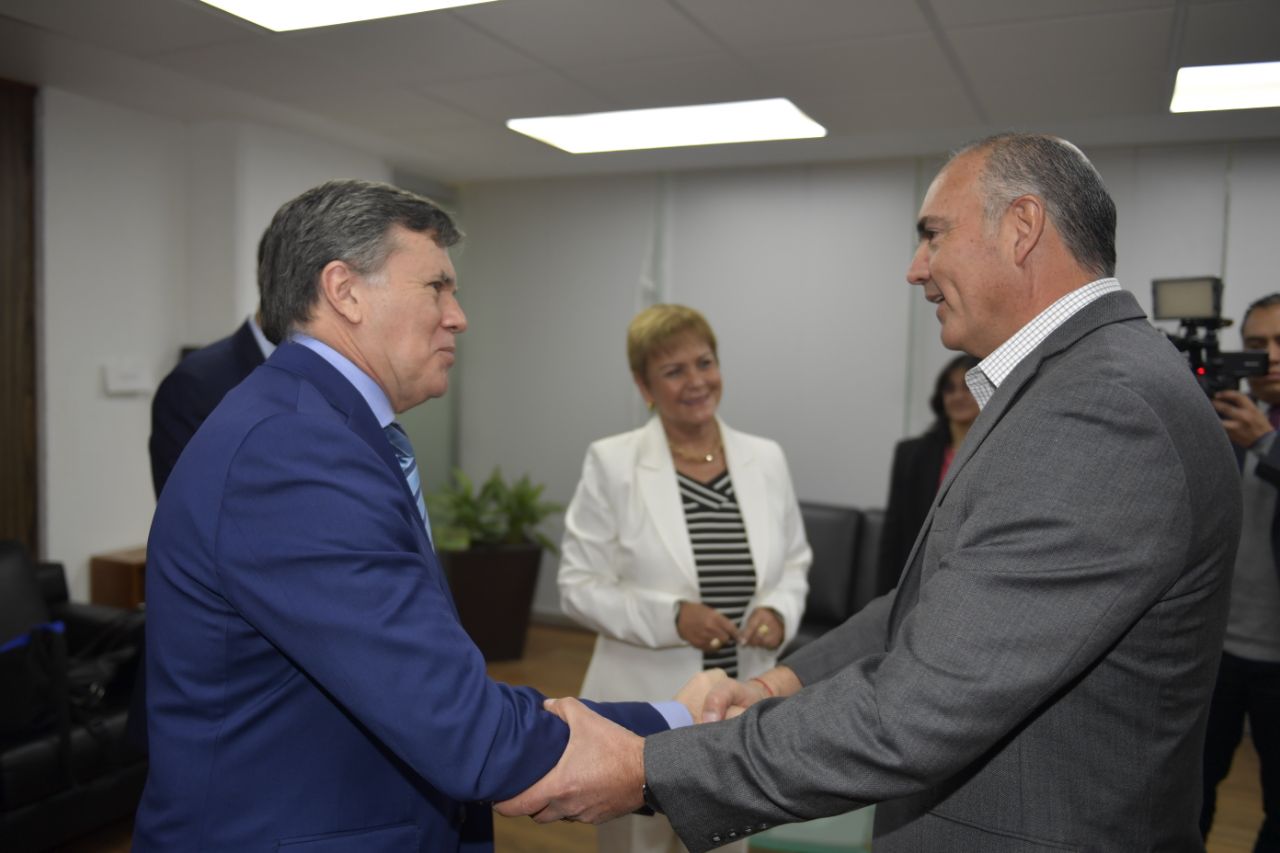The Director General of IICA stated that the new cooperation actions will focus on strengthening the support that IICA provides to biofactories in their efforts to control different types of fruit flies, including the Mediterranean fruit fly.
Mexico City, 5 March 2018 (IICA). Mexico City – The Inter-American Institute for Cooperation on Agriculture (IICA) and the National Service for Agrifood Health, Safety and Quality (SENASICA) of Mexico agreed to increase joint activities aimed at driving production and trade, as reported today by Manuel Otero, Director General of IICA, an organization that promotes agricultural development in the Americas.

Otero stated that the new cooperation actions will focus on strengthening the support that IICA provides to biofactories in their efforts to control different types of fruit flies, including the Mediterranean fruit fly.
The agreements, which are the result of joint work with SENASICA, will allow for strengthening and consolidating work in an area that IICA considers fundamental: protecting Mexico’s phytozoosanitary status, given the fact that Mexico’s eradication of the Mediterranean fruit fly has enabled the country to export approximately 250 fruit and vegetable species for close to 32 billion dollars over the past few years.
Otero ended his five-day work visit to Mexico by meeting with José Eduardo Calzada Rovirosa, Head of the Secretariat of Agriculture, Livestock, Rural Development, Fisheries and Food (SAGARPA), with whom he discussed matters related to science and technology, integration of value chains, and the opening of markets.
“We fully agreed with the head of SAGARPA on all matters addressed, which we will continue discussing during Secretary Calzada Rovirosa’s next visit to IICA Headquarters in San Jose, Costa Rica,” stated Otero, who was accompanied by Gloria Abraham, IICA Representative in Mexico, during the meeting.
To provide further continuity to joint work between IICA and the Mexican government, Enrique Sánchez Cruz, Director-in-Chief of SENASICA, will visit IICA Headquarters in May to participate in tripartite actions between Mexico, Guatemala and the United States aimed at controlling these pests.
Otero’s visit to Mexico was the third leg of a tour that included meetings in Canada and the United States with high-level government officials and representatives of multilateral credit organizations, NGOs and the private sector. Another concrete result of the visit, as announced by the Director General of IICA, was the agreement to strengthen joint work with SAGARPA to combat coffee leaf rust.
As part of its Regional Cooperative Program for the Technological Development and Modernization of Coffee Production (PROMECAFE), IICA implements projects funded by the European Union (EU) in Honduras, El Salvador, Guatemala and Nicaragua to combat the fungus that causes coffee leaf rust, a potentially devastating disease. To further strengthen these efforts, Jorge Armando Narváez, Undersecretary of Agriculture of SAGARPA, will visit IICA Headquarters in May.
Otero also met with Jesús Alcántara, Undersecretary of Rural Development at SAGARPA, and Luis Alfonso de Alba, Undersecretary for Latin America and the Caribbean of the Secretariat of Foreign Affairs.
During these meetings, the Director General underscored the importance of the agricultural sector in Mexico and its challenges in the face of climate change, the need for technological modernization and rural-urban migration.
“Mexico is one of the key players in the development of the Americas, and IICA will continue to provide its expertise for strengthening agricultural activity, primarily in the least developed and least competitive regions, and to support their modernization,” stated Otero, who promised that the organization he leads will seek to lend support to projects undertaken by Mexico such as the Mesoamérica Sin Hambre – Mesoamerica Without Hunger Program – which supports food security and nutritional activities in Belize, Colombia, Costa Rica, the Dominican Republic, El Salvador, Guatemala, Honduras, Nicaragua and Panama. He also promised support for programs on family gardens, so that families, especially women and youth, can consume and produce low-cost food that is fresh and healthy.
More information:
Silvia López
Communication Coordinator
IICA Delegation in México
José Alfredo Alpízar
Press and Outreach Coordinator










